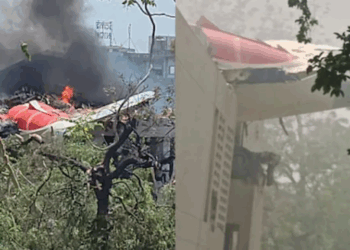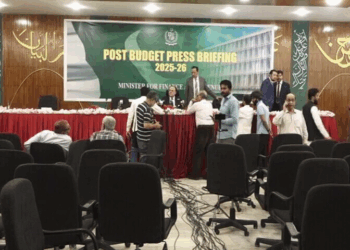Islamabad, April 24, 2025: An emergency meeting of the National Security Committee (NSC), chaired by Prime Minister Shehbaz Sharif, is currently underway in Islamabad to deliberate Pakistan’s response to a series of aggressive measures taken by India following the recent terror attack in Pahalgam, Indian Illegally Occupied Jammu and Kashmir (IIOJK).
Speaking to a private news channel ahead of the meeting, Deputy Prime Minister and Foreign Minister Ishaq Dar confirmed that the NSC will formulate a comprehensive response. “The National Security Committee will issue a detailed reply to India,” he stated.
Sources indicate that the high-level civil-military huddle is reviewing both internal and external security dynamics, especially in light of what they described as India’s “hasty and inappropriate” reaction to the Pahalgam incident. Dar criticized New Delhi’s steps, saying India has failed to provide any credible evidence linking Pakistan to the attack and accused it of using the tragedy to deflect from its internal issues.
India has announced five retaliatory measures, including the suspension of the Indus Waters Treaty, a decades-old water-sharing agreement facilitated by the World Bank. Additionally, India has banned the entry of Pakistani nationals, closed the Integrated Check Post at Attari, and ordered all Pakistanis currently in India to leave by May 1.
The SAARC Visa Exemption Scheme (SVES) for Pakistani citizens has also been suspended, and any previously issued SVES visas have been invalidated. Pakistani nationals already in India under SVES must exit the country within 48 hours.
Furthermore, India has declared Pakistan’s military, naval, and air advisers at the High Commission in New Delhi persona non grata, asking them to leave within a week. It will also recall its own defence personnel from its High Commission in Islamabad and reduce overall diplomatic staff from 55 to 30 by May 1.
Defence Minister Khawaja Asif said that India cannot unilaterally suspend the Indus Waters Treaty, pointing out that it involves multiple stakeholders including the World Bank. “India has long desired to exit the treaty, but we are fully prepared to respond if needed,” he added.
Reiterating Pakistan’s longstanding position, Asif stated, “We categorically reject terrorism in all forms, everywhere. Pakistan has no connection with the Pahalgam incident.” He pointed to several insurgencies across Indian territory, from Nagaland and Manipur to Chhattisgarh, suggesting that internal dissent within India may be the actual root cause.
The Defence Minister also hinted at the possibility of a “false flag” operation. “Allegations alone are not enough, India must conduct a transparent investigation,” he said.
Amid rising tensions, social media in India has been flooded with calls for retaliation, and mainstream media has fanned the flames with war-mongering narratives, developments that have further strained the already fragile relationship between the two nuclear-armed neighbors.








